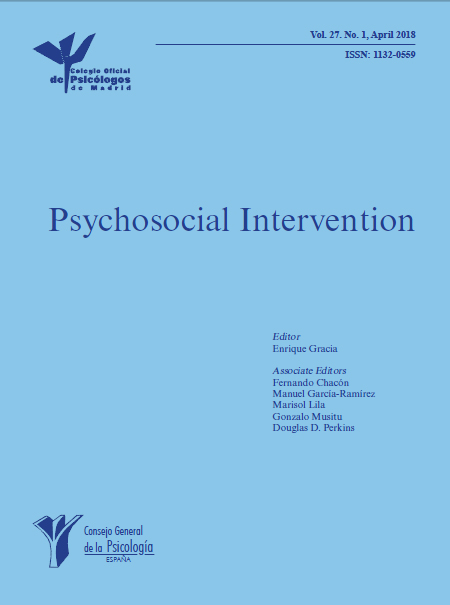
Role Stressors, Task-Oriented Norm and Job Satisfaction: A Longitudinal Study
[Estresores de Rol, Norma de Orientación a la Tarea y Satisfacción Laboral: Un Estudio Longitudinal]
Urien Angulo, Begoña Osca, Amparo
https://doi.org/10.5093/tr2012a14
Abstract
In line with the Job Demands-Resources Model (JD-R) this study analyzes the role of task-oriented norm (job resource) and role stressors (job demands) to predict job satisfaction over time. In order to test this effect, a sample was gathered in a manufacturing setting at two different times. Hierarchical regression analysis tests the principal and the interaction effects of role stressors (role conflict and role overload) and task-oriented norm to predict job satisfaction. Results confirm the negative effect of role conflict at Time 1 on job satisfaction at Time 2 showing the relevance of setting priorities to neutralize the negative effect of this stressor. Moreover, these results show the interaction between task overload (Time 1) and task-oriented norm (Time 1) on job satisfaction (Time 2) after working together for more than one year as a permanent group. Discussion is focused on the structural work context and within group implications of these findings in real working settings.
Resumen
Partiendo del Modelo de Demandas-Recursos (JD-R) este estudio analiza el papel de la norma de orientación a la tarea (recurso) en los estresores del trabajo (demandas) para predecir la satisfacción laboral. Este efecto se prueba en una muestra de trabajadores de la industria de automoción, efectuando la toma de datos en dos tiempos. La regresión jerárquica prueba las relaciones directas entre las variables y el efecto de la interacción de los estresores (conflicto de rol y sobre-carga de trabajo) y la orientación a la tarea para predecir la satisfacción. Los resultados confirman la relación negativa entre el conflicto de rol en Tiempo 1 y la satisfacción en Tiempo 2. Además, estos resultados muestran la interacción entre la sobre-carga de trabajo (Tiempo 1) y la orientación a la tarea (Tiempo 1) en la satisfacción laboral (Tiempo 2) cuando la muestra lleva trabajando más de un año en grupos. En la discusión indicamos las implicaciones de estos resultados para el contexto laboral de los grupos y para las relaciones intra-grupos en entornos reales de trabajo.
Palabras clave
role stressors#task-oriented norm#job satisfaction#longitudinal studyCopyright © 2024. Colegio Oficial de la Psicología de Madrid








 CrossRef
CrossRef






